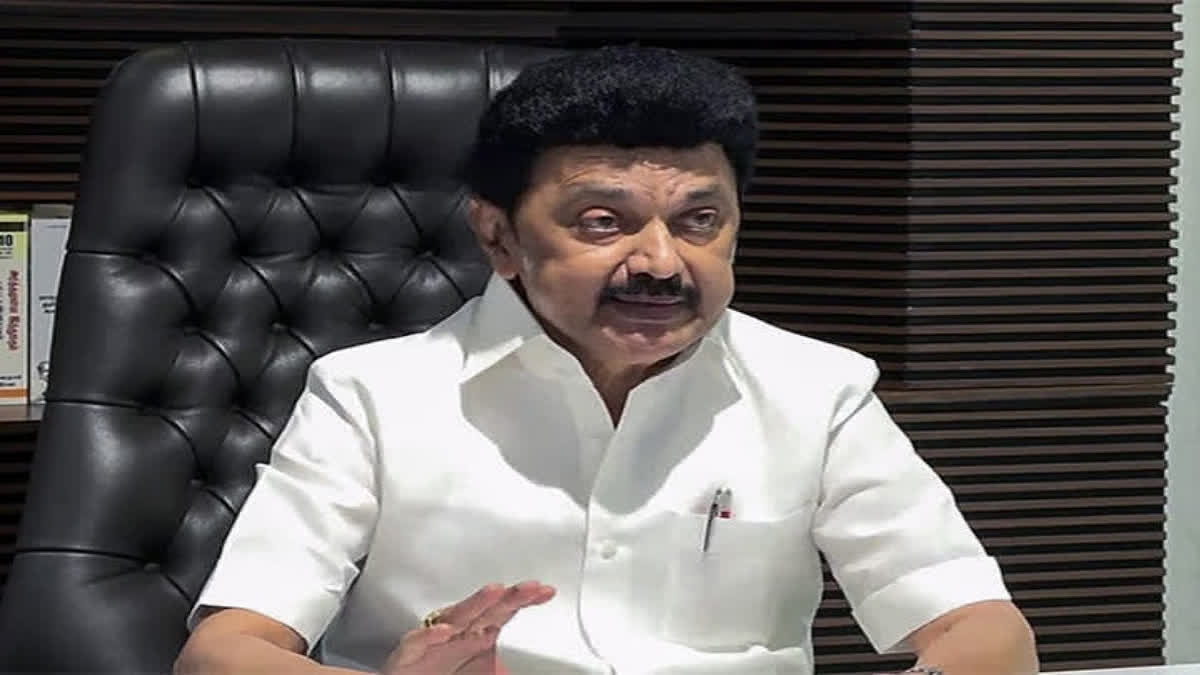Chennai: The Tamil Nadu Legislative Assembly has passed a calling attention resolution condemning the University Grants Commission's (UGC) revised regulations, arguing that they infringe upon the state's autonomy and undermine its higher education system.
The controversy surrounds around the UGC's decision to grant Governors greater authority in the appointment of Vice-Chancellors.
The UGC contends that these changes are necessary to ensure greater autonomy and academic freedom for universities. However, the Tamil Nadu government argues that this move infringes upon the state's rights and undermines its ability to govern its own education system. Tamil Nadu Chief Minister M K Stalin, in an address to the state Assembly, condemned the UGC's move, saying, "This is a clear violation of federal principles and will have a detrimental impact on the future of Tamil Nadu's students."
Stalin further emphasised that the state government would not tolerate any attempts to undermine the autonomy of its educational institutions. He said that the state has the right to govern its own education system and that the UGC's actions are an overreach of its authority.
"The Union government has also started an attempt to destroy universities. The UGC has laid down rules that the Governor will decide the selection committee to be formed to select the Vice-Chancellor. Giving the power to appoint Vice-Chancellors to the Governor can only be a way to destroy universities. That is why they are going to do this. There is already a conflict of opinion between the Tamil Nadu government and the Governor on this issue," Stalin said.
"We do not accept the Governor appointed members recommended by the UGC to the selection committee to select the Vice-Chancellor. When a constructive solution has not been reached to this conflict, it is not right; it is not proper to give more powers to the Governors to appoint Vice-Chancellors arbitrarily," he said.
"Isn't it unfair to issue an order and say that educational institutions that do not implement it cannot participate in UGC schemes? And that too, is it not a public threat that they cannot award degrees? What else does it show?" Stalin added.
"This rule is against the federal principle; interfering with the rights of states is an act of belittling the state governments elected by the people. Only those elected by the people should have the power over education. Only then can education be provided to all the people in full," the Chief Minister said.
"Those who stay in appointed positions for a few years and then leave cannot understand the basic sentiments of the people of a state. The Union government is not doing what it should do in the education sector," he said.
"The Centre refuses to make any effort to rein in private de jure universities that are violating the limits with unlimited fees and no reservation; the Union government keeps reducing the financial allocation for higher education in its budget statement. The Union Government, which has not set up a single new higher education institution like IIT, IIM, or Central University in Tamil Nadu on behalf of the education department; the Union Government, which has failed to take steps to fill the statutory teaching posts of Scheduled Castes and Backward Classes in higher education institutions like IIT; and the Union Government, which is trying to bring universities under the control of the states under its full control, is malicious and selfish," CM Stalin added.
The opposition parties in Tamil Nadu have also united in their opposition to the UGC's revised regulations. Tamil Nadu Higher Education Minister Govi Chezhiyan including leaders from various parties, Congress, and PMK, have expressed concerns about the potential impact of these changes on the quality of higher education in the state. Members such as Rajesh Kumar from Congress, G.K. Mani from PMK, and Alur Shanavas from VCK voiced their concerns and supported the resolution. Nainar Nagendran from the BJP opposed this separate resolution.



